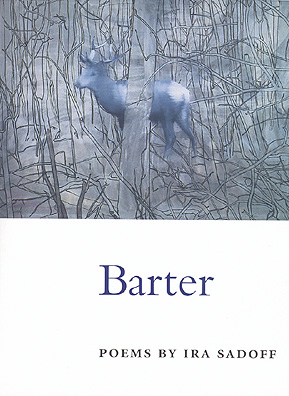Award winning, widely anthologized poet, novelist, and short story writer, Ira Sadoff has published six collections of poetry, including Grazing, Emotional Traffic and Palm Reading In Winter. He has also published a novel, Uncoupling, and The Ira Sadoff Reader, a collection of stories, poems, and essays. His poems have appeared in most major literary magazines, including The New Yorker, The American Poetry, The Paris Review, The Nation, The New Republic, Esquire, Antaeus, The Hudson Review, and The Partisan Review.
Ira Sadoff's poems have appeared in Best Poems of 2002, have been awarded the Leonard Shestack Prize, the Pushcart Poetry Prize, and the George Bogin Memorial Prize from the Poetry Society of America. He has taught at the University of Virginia, the Iowa Writers Workshop, and currently teaches at Colby College.
| "The Soul" The shaft of narrative peers down.
just below its feathers. It's too late to raise the soul,
Nevertheless, I want to talk about it. Those scarred bodies
And when the wind didn't drag my scent to her,
by a very white light, I should have shed my misgivings
the woman who what why words fail me here.
we call the innards in animals, because they dwell
when I'm beguiled by the music the hooves made |
